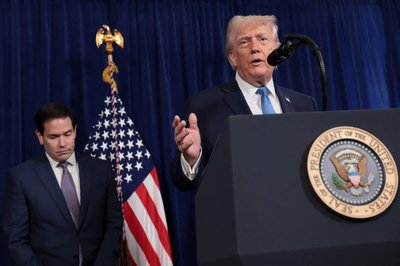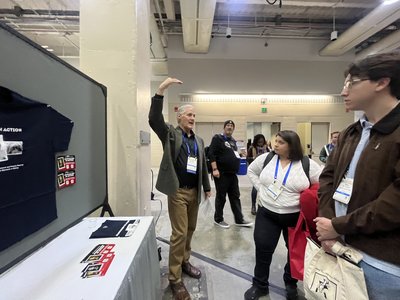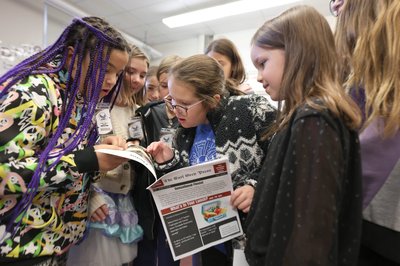by David Cutler, teacher
Florida politicians have made it clear that they are determined to silence the voices of young people who dare to speak out on issues that matter to them. Their latest move to curtail student voice across all school types, including private and independent institutions, is a direct attack on our democracy. If we don't act now, we risk losing the very foundation of education that promotes informed and engaged citizenship.
" If we don't act now, we risk losing the very foundation of education that promotes informed and engaged citizenship. "
SB 1620 is a dangerous threat to the future of our education system. While it claims to be about "childhood mental health, safety, and welfare," it would rob students in private schools of their educational opportunities and personal freedoms. By diverting time and resources away from teaching and student support, this bill would undoubtedly stifle learning, especially student journalism.
The bill’s proposed requirements are deeply troubling, including the mandate to publish lists of approved websites for instructional purposes, policies prohibiting the use of personal wireless communication devices, and the banning of posting student images and location information online at public, charter and private schools.
Related: The state of education with Diane Ravitch
Maintaining a list of approved websites and enforcing policies on online behavior would present significant challenges. It is unclear who would be responsible for enforcing these policies and how they would carry out enforcement. Additionally, the bill's impact on digital student news websites (and whether they would be allowed to operate) is unclear.
The state's interference may force schools to justify the instructional value of maintaining a student news site, potentially leading to disputes with the state. In essence, this bill poses a significant threat to student voice and journalism in public and private schools, potentially eroding all students’ ability to report on issues affecting their communities and engage in public discourse.
In essence, this bill poses a significant threat to student voice and journalism in public and private schools, potentially eroding all students’ ability to report on issues affecting their communities and engage in public discourse.
Adding to the concerns, banning smart devices from student journalists would be like asking archers to hit a target without their bows and arrows; it would severely hinder their ability to perform their duties effectively, or at all. Personal communication devices play an essential role in student journalism, as they are vital for recording interviews, taking notes and capturing photos and videos for stories.
The mobility and immediacy of smart devices are particularly valuable when reporting on breaking news and events. Without access to personal communication devices, student journalists would be at a crippling disadvantage. This would make it difficult, if not impossible, to equip them with the skills necessary to succeed in their desired profession.
Proponents of the bill might claim that "we are not censoring student voice by requiring students to produce print journalism only," but it is evident that online student media sites offer a cost-effective and eco-friendly alternative that can reach a wider audience. While print journalism still holds considerable value, online news sites present a viable option for schools that lack resources or formal journalism programs. Furthermore, online platforms provide a global audience, allowing students to express their views and share their experiences with a broader community.
Related: Teachers discuss curriculum bans, book bans and attacks on educators
Finally, a law prohibiting the posting of photos of students online could deal a fatal blow to student voice in Florida's schools. Student media websites play a critical role in reporting on events and activities happening at the school, often including photos of students participating in various activities. Photos add context to a story, provide a visual element and engage readers, making them essential. Without them, student media sites would struggle to attract readers and remain relevant.
If the state bans photos, it will likely also prohibit video content, which would effectively shut down student broadcast programs. Depriving students of these programs would mean taking away an essential means of self-expression and reporting, limiting their ability to contribute to the school's community and the broader public discourse.
Depriving students of these programs would mean taking away an essential means of self-expression and reporting, limiting their ability to contribute to the school's community and the broader public discourse.
However, there may be a silver lining to this proposed bill. At long last, it could encourage all school types to work together to fight against government censorship and abuse.
We need to unite and reject this bill and any other attempts to limit student voice and personal freedoms in the education system. This would also send a strong message to politicians that any attempt to infringe on student speech will be met with resistance and unity.
After all, our democracy depends on the ability of young people to engage in critical thinking, activism and advocacy. We cannot let politicians silence the voices of the next generation. It's time for educators from all school sectors to unite and fight against this bill — and any other attempts to limit student voice and personal freedoms in our education system.
David Cutler teaches American history, government and journalism at Brimmer and May, an independent school in Chestnut Hill, Mass. His writing has appeared in the National Association of Independent Schools, PBS NewsHour, Edutopia, The Atlantic and Independent School Magazine. Follow David on Twitter @spinedu .





